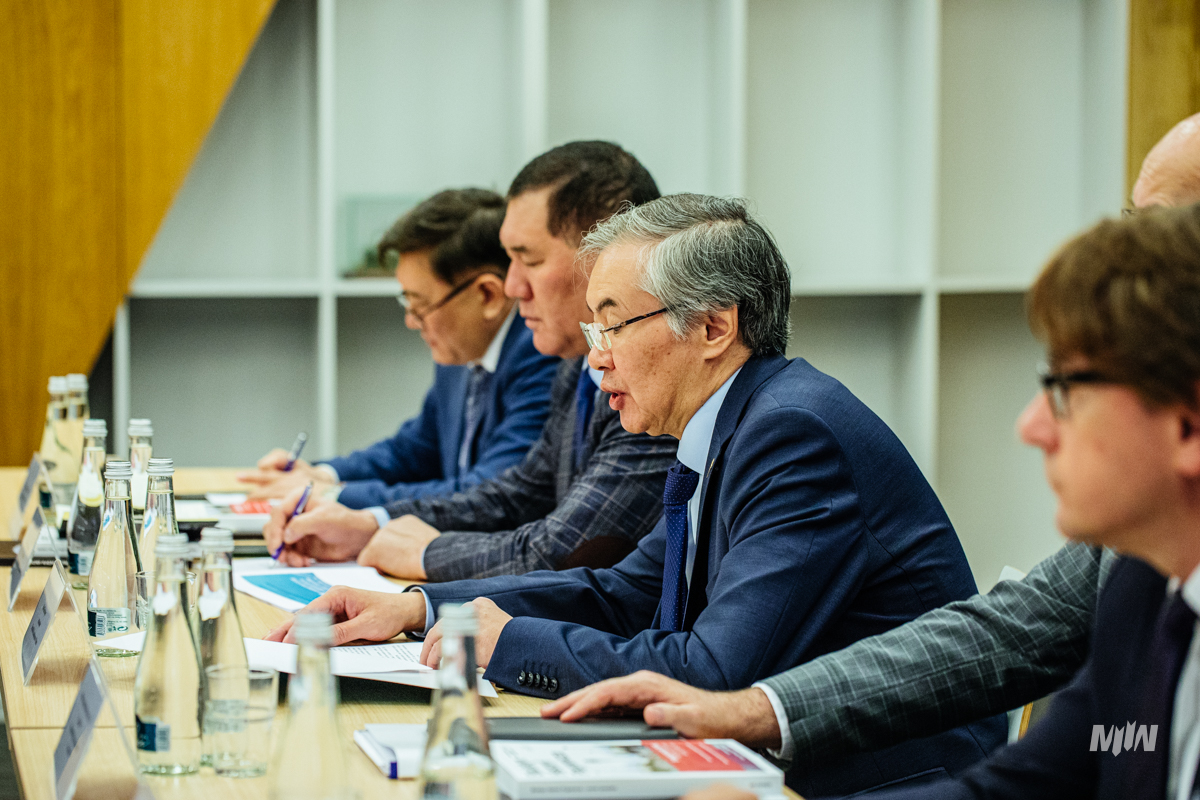The act of establishing the Polish-Kazakh Historical Commission was signed on June 6, 2022 at the Sybir Memorial Museum in Białystok. The Commission is an international forum for research cooperation, contributing to expanding knowledge about Poles deported to the East.
The Commission’s meeting in recent days was attended by: the Chairman of the Commission from the Kazakh side — professor Ziyabek Kabuldinov, Director of the Institute of History and Ethnology named after Czokan Valichanov at the Science Committee of the Ministry of Education and Science of the Republic of Kazakhstan in Almaty, Manar Kalybekov, PhD, and Bota Zhunussov, PhD, from the same institute, and Kairat Alimgazinov, PhD, Deputy Director of the Archives of the President of the Republic of Kazakhstan.
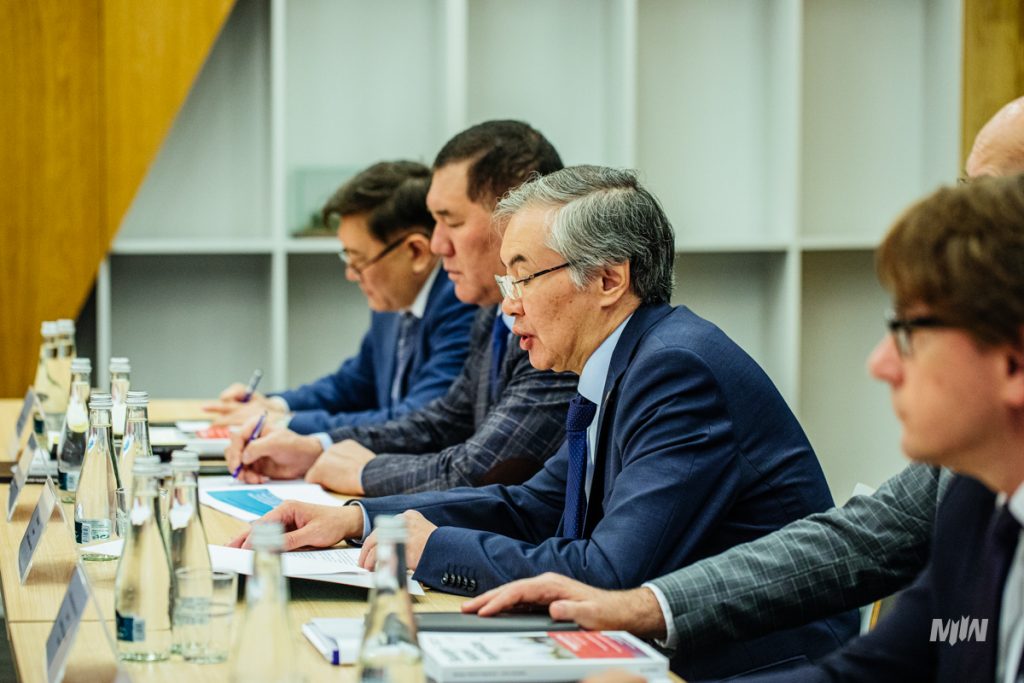
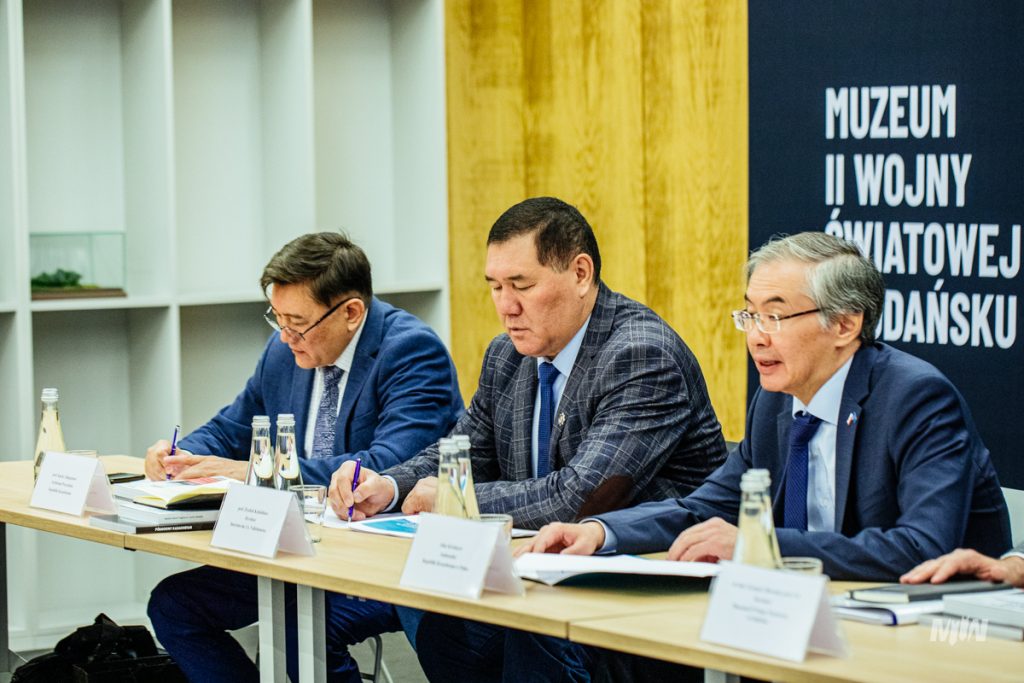
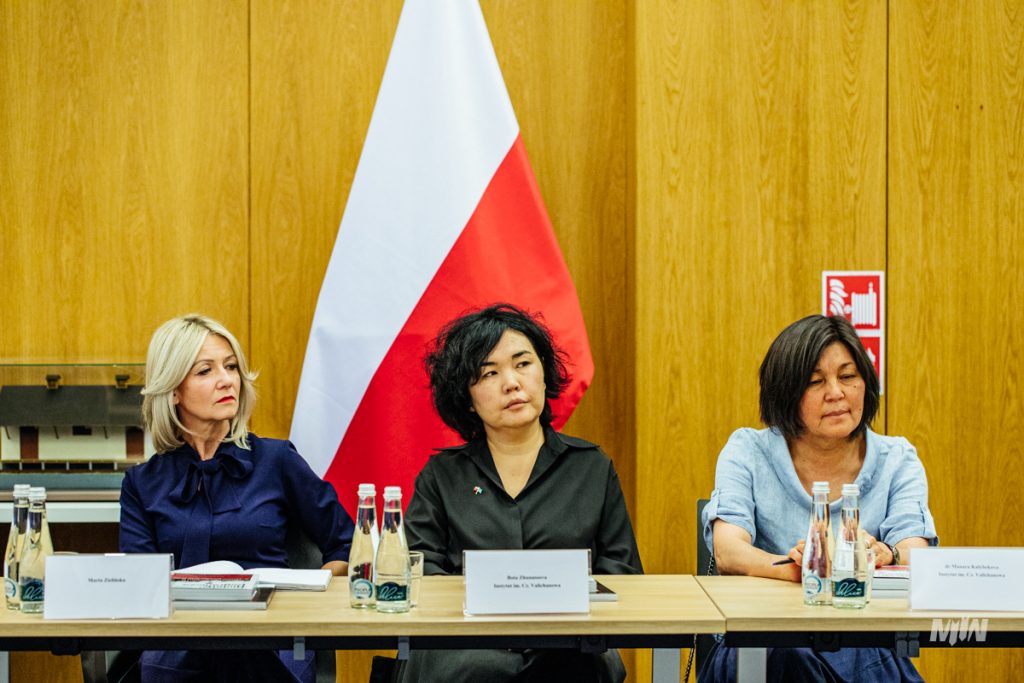
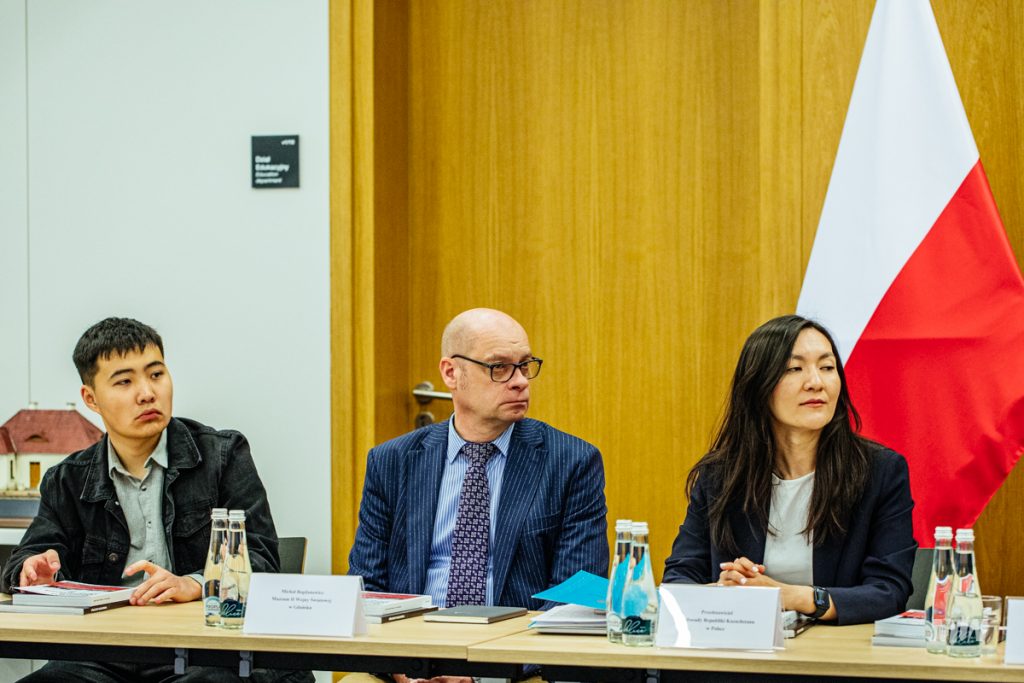
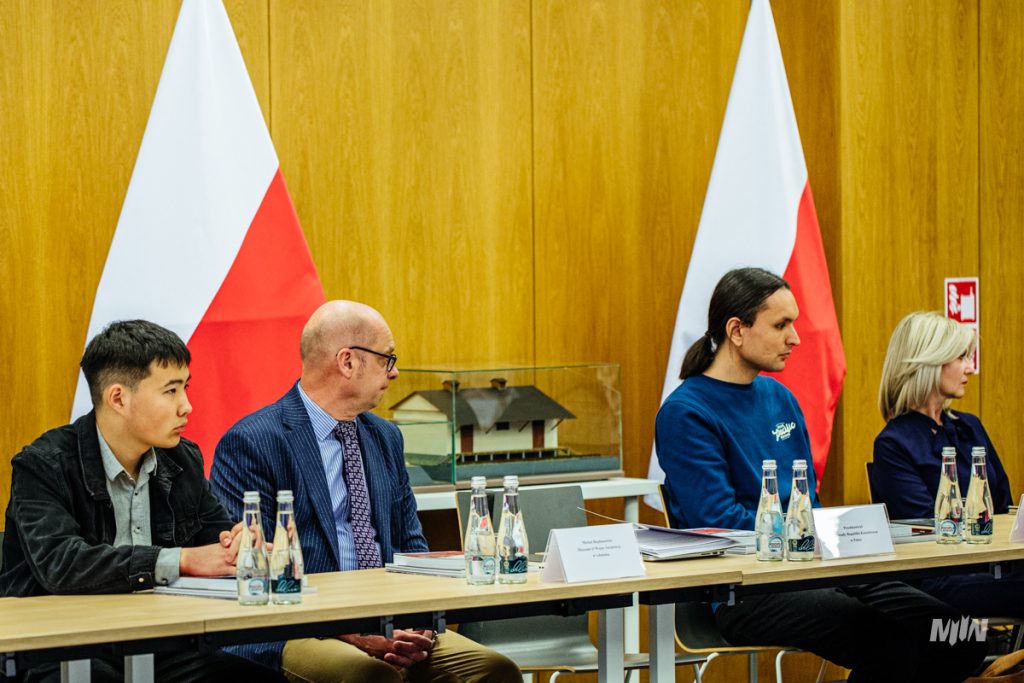
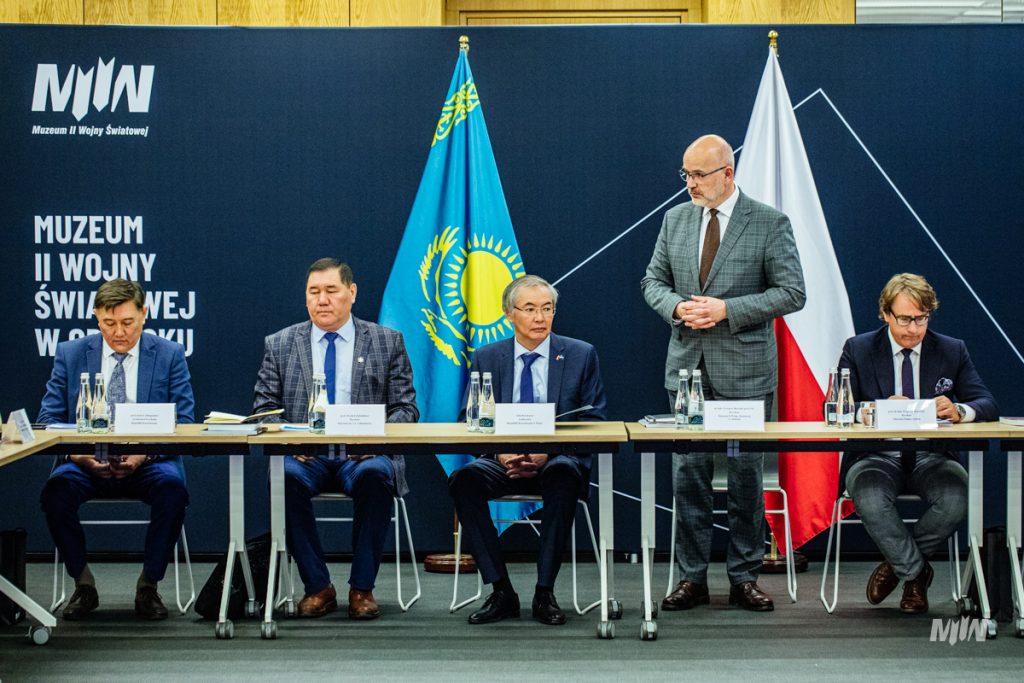
On Thursday, May 18, a meeting of the Committee was held at the Museum of the Second World War in Gdańsk. The Ambassador of Kazakhstan, Alim Kirabayev, who was present at the opening of the meeting, spoke about the common history of the Polish and Kazakh nations. — “We must remember history and cherish friendship” — he said. – Where consent is, there is strength — he added in Polish.
The Chairman of the Commission on the Polish side and at the same time the Director of the Sybir Memorial Museum — professor Wojciech Śleszyński — commented on the state of preparations for the publication of collections of documents about deported Poles, which are in the Kazakh archives. He emphasized the great work done by the members of the Commission in just one year of its operation.
The participants of the meeting were presented with the latest, special issue of “Biuletyn Historii Pogranicza” (“Borderlands History Bulletin”) — a magazine published jointly by the Sybir Memorial Museum and the Bialystok branch of the Polish Historical Society. The latest issue of the magazine is entirely devoted to Polish-Kazakhstan relations. Not without reason: in the history of the 20th century, which was difficult for our country and nation, Kazakhstan played an important role.
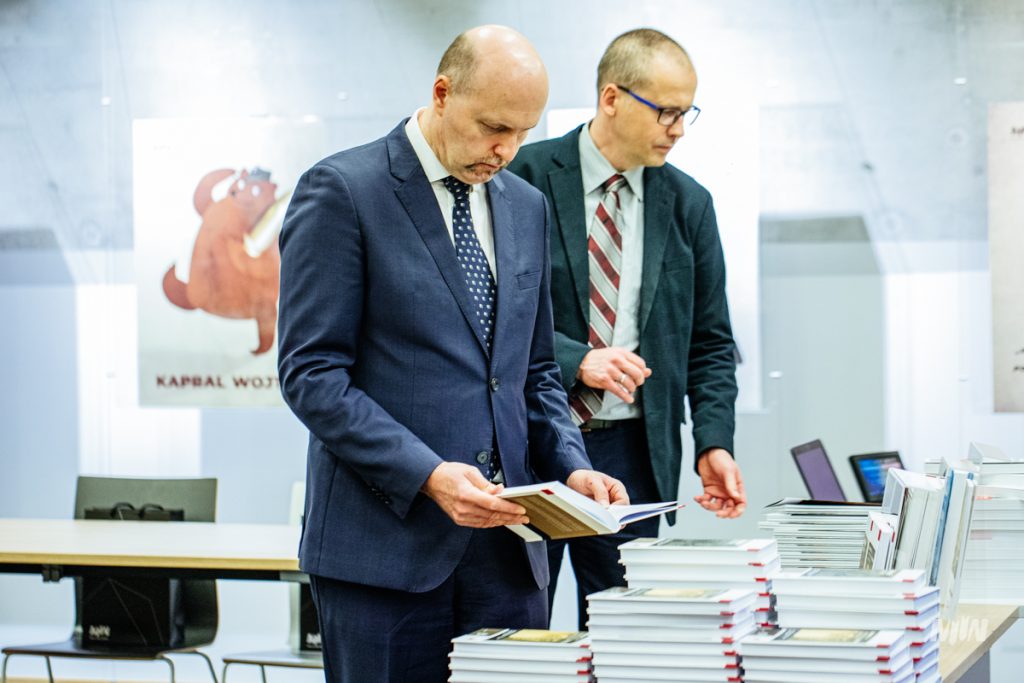
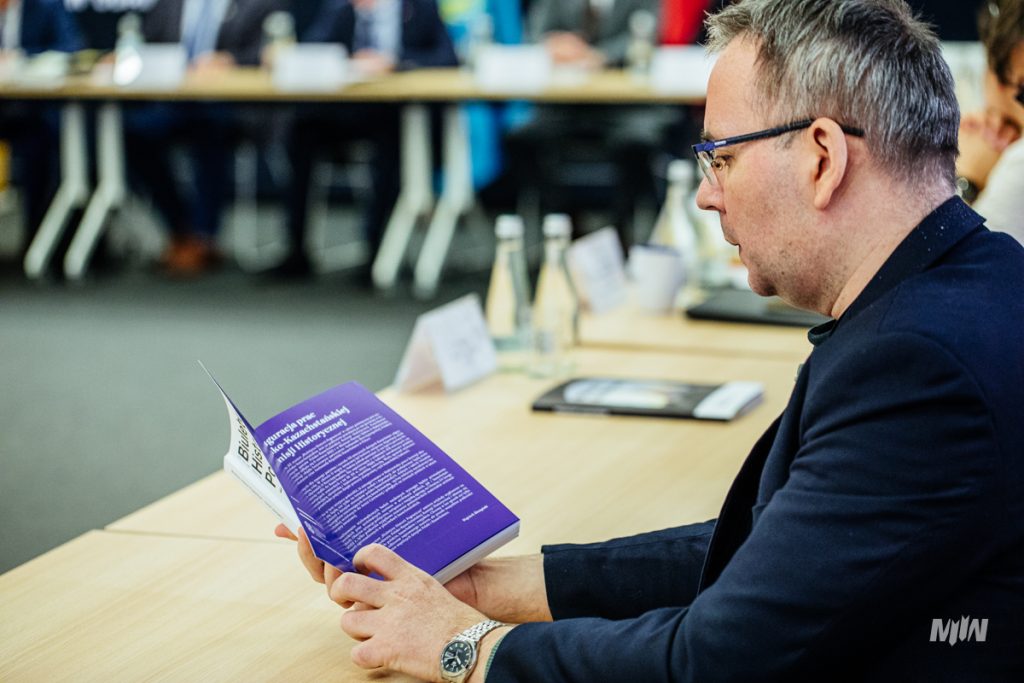
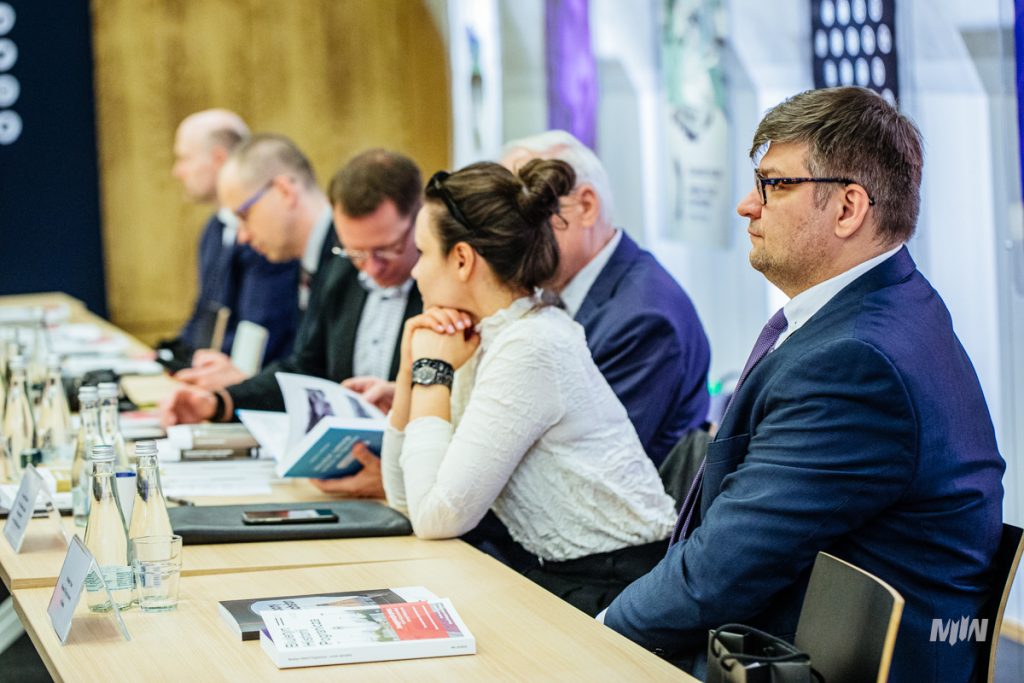
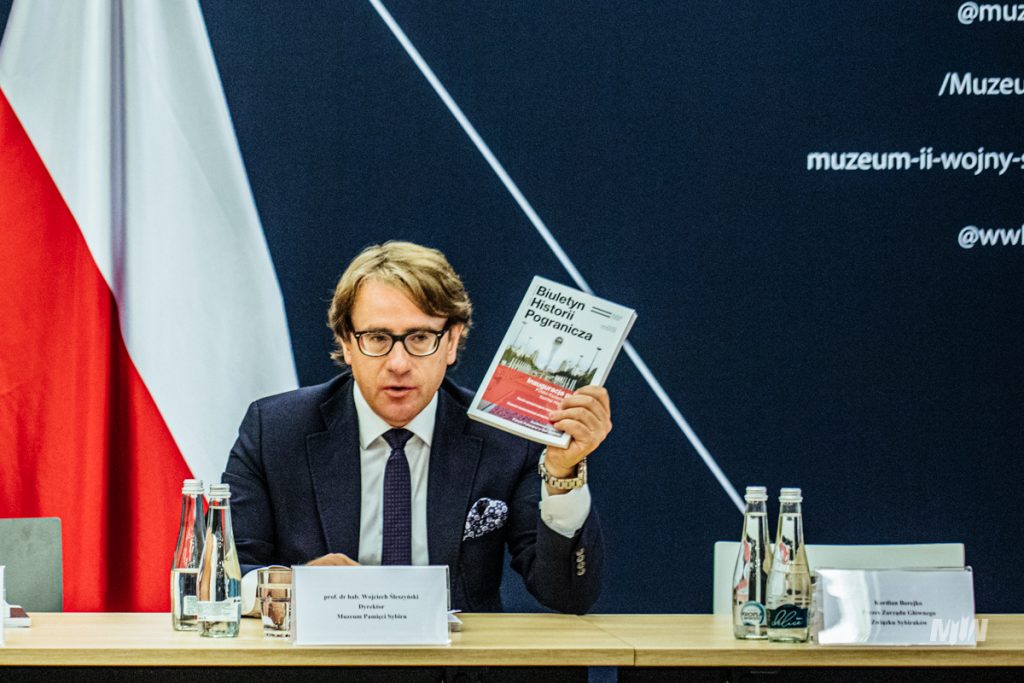
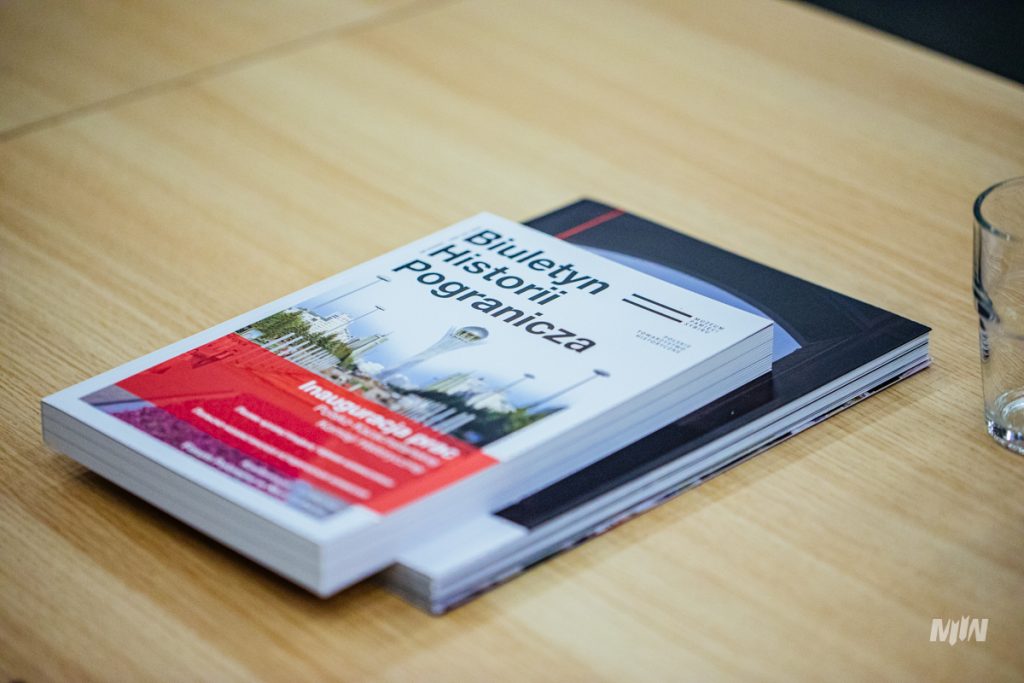
During World War II, it was a place of deportation of thousands of citizens of the Second Polish Republic. However, they were not the first Poles who ended up in Kazakhstan. Let us not forget the 19th-century exiles or the Soviet deportations from the 1930s, which affected people of Polish nationality living in the Ukrainian and Belarusian Soviet Republics. Many of them survived only thanks to the help of the local population.
The Bulletin was published in three language versions: Polish, Kazakh and Russian.
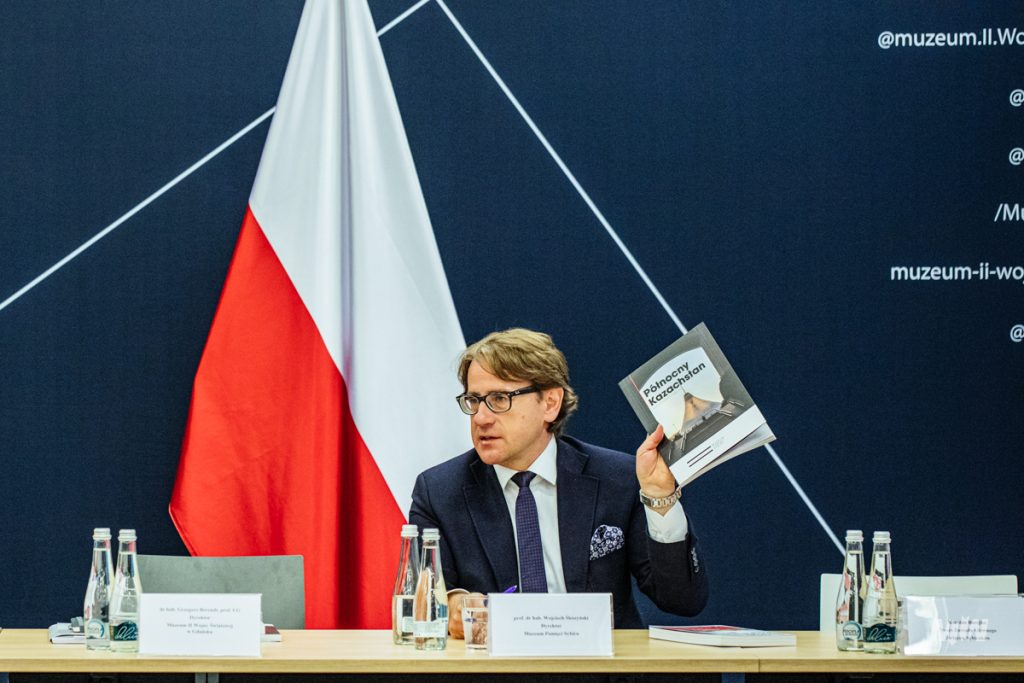
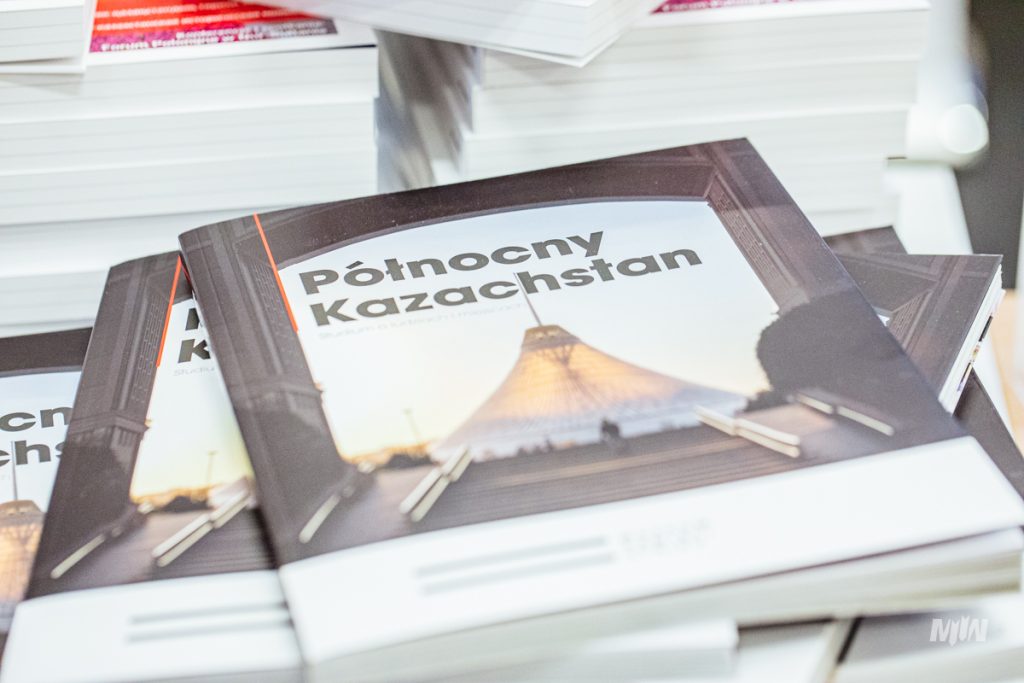
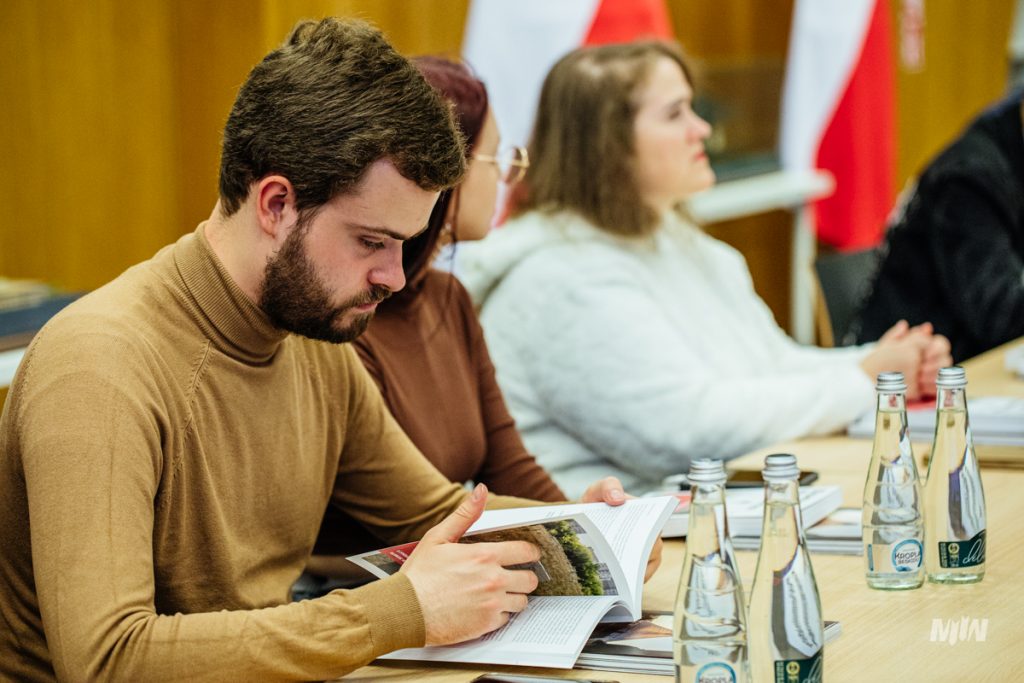
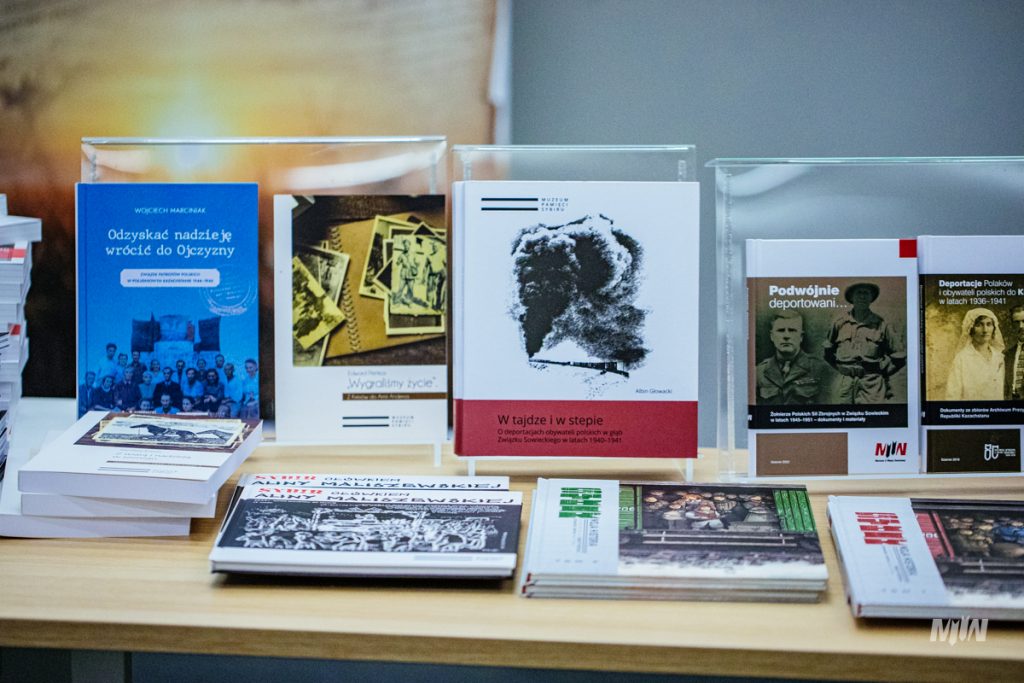
On the occasion of this meeting, a unique event took place. Chairman of the Commission, professor Wojciech Śleszyński and the Director of the Museum of the Second World War in Gdańsk, Grzegorz Berendt, PhD, DSc, handed over to the President of the Main Board of Association of Siberian Deportees, Kordian Borejko, copies of documents from the State Archives of the City of Kokczetaw, which are the evidence of the deportation of his family.
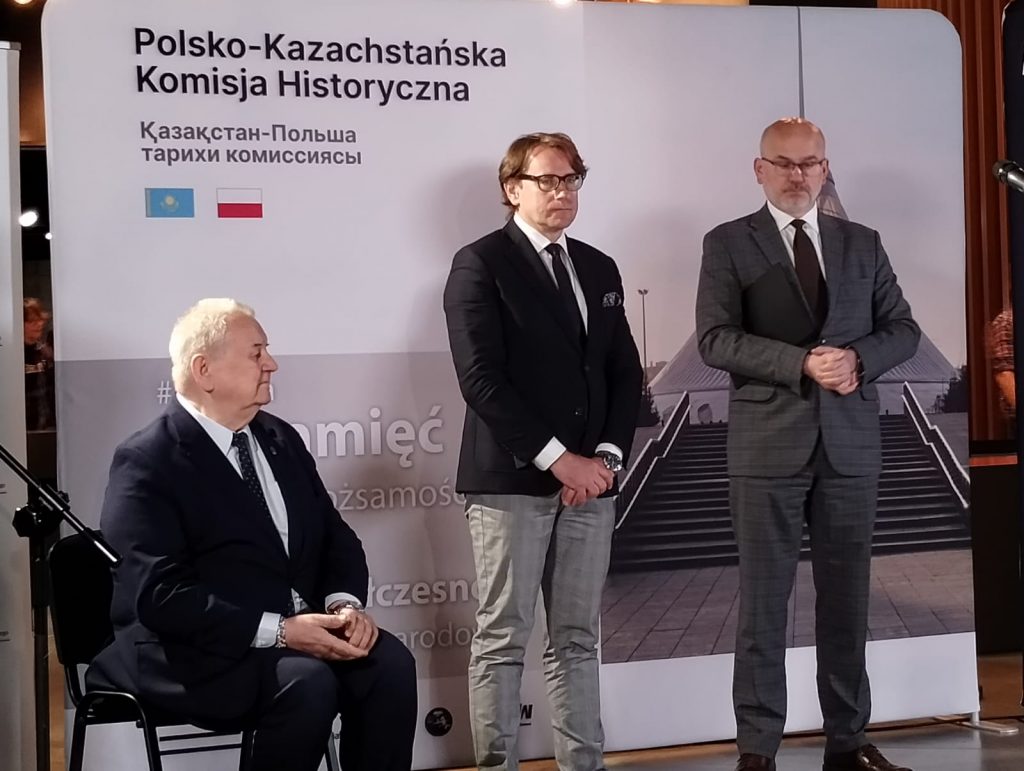
Kordian Borejko, born in 1939, was deported to Kazakhstan in 1940 with his mother and siblings. A huge part of at least 330,000 Poles deported deep into the USSR as part of four mass deportations from 1940-41 went to the Kazakh SSR.
— I would like to thank both museum directors standing here for taking up this initiative documenting the fate of Poles and the fate of the nation that helped us there, in exile — said Kordian Borejko, moved. — I am glad that guests from Kazakhstan are here. Even though I was deported there, I have fond memories. I survived thanks to the locals. I will always be very grateful to them. To the guests from Kazakhstan, I would like to express my sincere thanks for their help on behalf of all Sybiraks.
— The documents handed over to President Borejko are a symbolic example of how the Polish-Kazakh Historical Commission works to reach historical sources and contributes to expanding our knowledge about Poles deported to Kazakhstan. In view of the closed Russian archives, it is an invaluable source of materials for Polish (and not only) researchers — says professor Wojciech Śleszyński. — Soon, other families of deportees will also gain access to documents obtained thanks to the activities of the Commission — he assured.
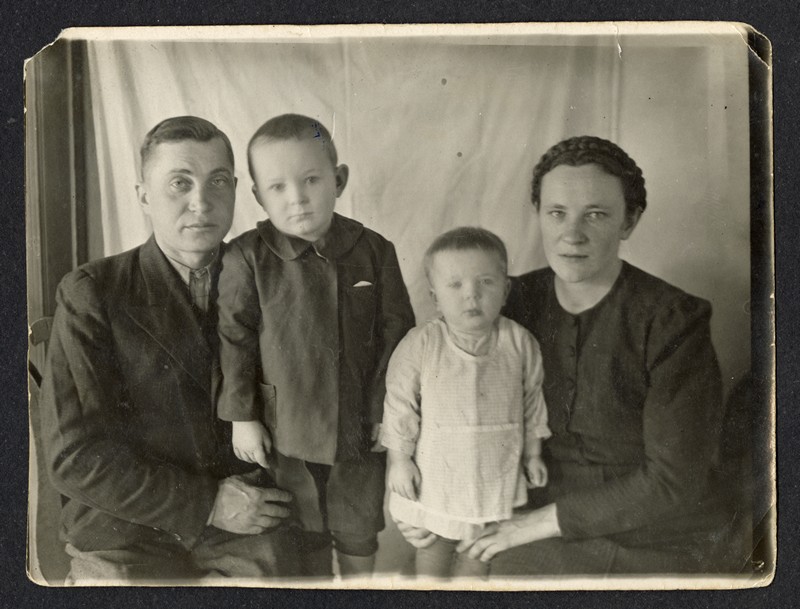
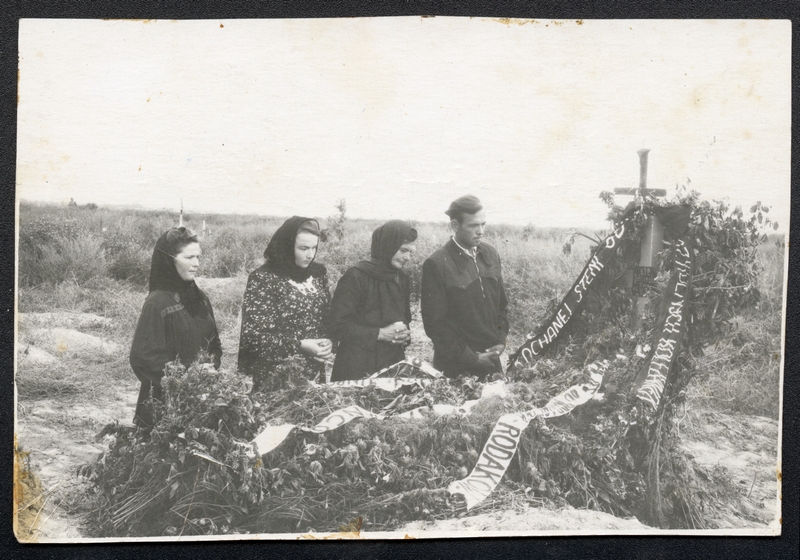

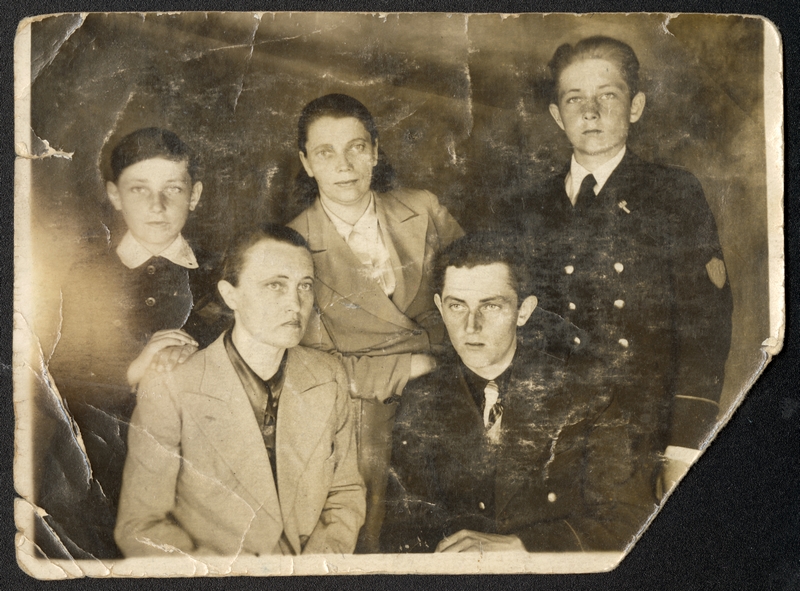
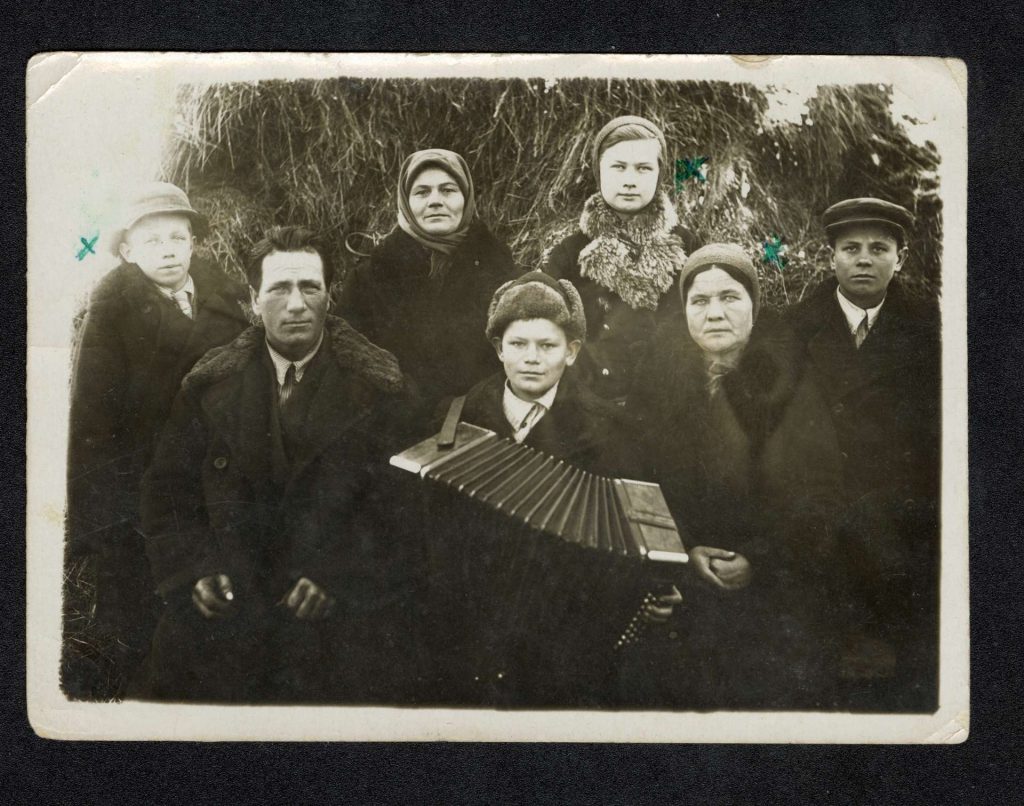
Members of the Committee will be staying at the seaside until Friday, May 19, among others, they will take part in the opening of the exhibition “The Great Famine in Kazakhstan — Unknown History” at the Museum of the Second World War in Gdańsk.
The meeting in Gdańsk is the third meeting of the Commission, which has been operating for less than a year (previous ones were held in Białystok and Nur-Sultan, i.e. today’s Astana). On Saturday, May 20, the Committee will move to Białystok, to the Sybir Memorial Museum.




